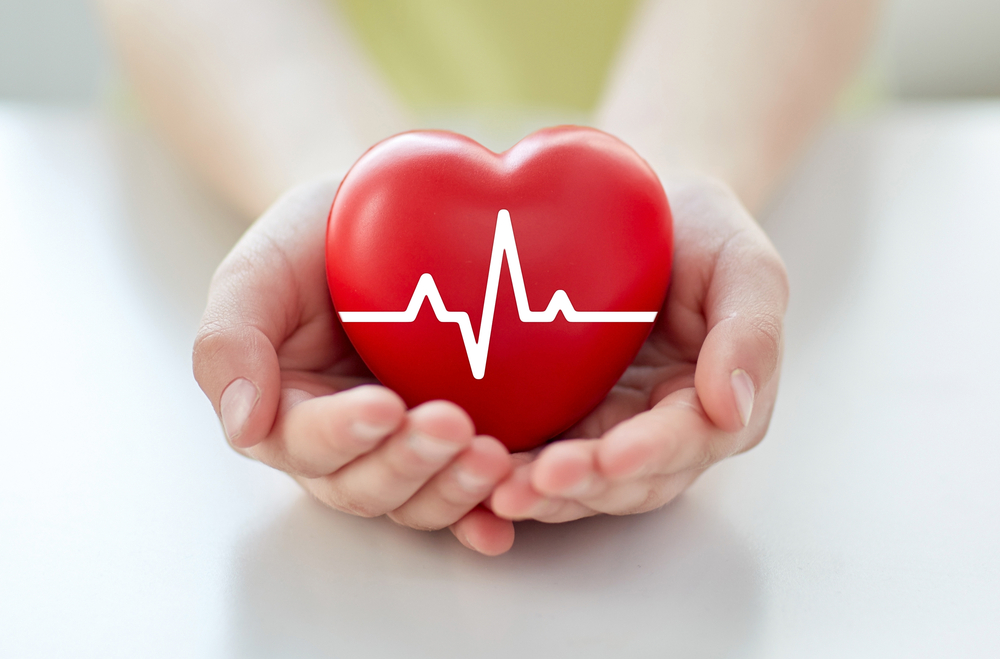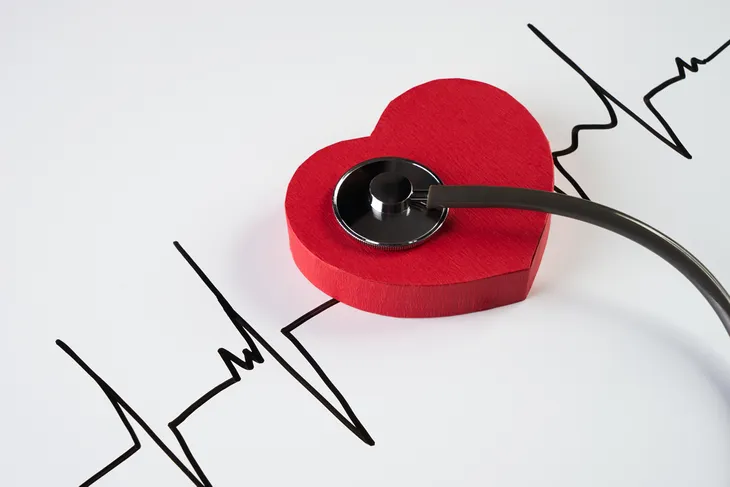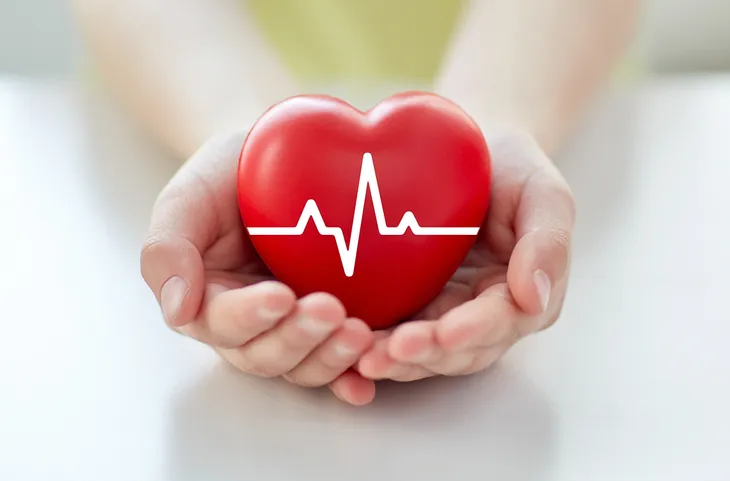- An arrhythmia, also known as an irregular heartbeat, can be harmless, but in some cases, it can also be a medical emergency.
- Some signs of an irregular heartbeat include heart palpitations or fluttering sensations, dizziness, fatigue, and excessive sweating.
- If your heart is beating irregularly, either too fast, too slow, or skipping a beat then talk to your doctor for a professional diagnosis.
Do you feel dizzy or do you experience heart fluttering? You may have a heart arrhythmia, or in other words, an irregular heartbeat. There’s nothing to panic about if you’ve felt symptoms only on an occasional basis for a short period of time.
The fast fluttering of the heart is experienced by many and may develop with age. However, if the symptoms persist, you may have a serious arrhythmia that signals heart disease. If this is the case, it requires treatment and medical supervision. So, get informed on the 11 signs and symptoms of an irregular heartbeat…
Heart Palpitations
One obvious sign of an arrhythmia is heart palpitations, which cause a single premature heartbeat or “skipped beat.” Usually, infrequent heart palpitations are not concerning; however, if they gradually increase, it may be time to consult a medical professional.
To give you a comparison, a normal, healthy heart pumps blood constantly through the circulatory system like a muscular pump, pumping (or expanding and contracting) an average of 100,000 times per day for a total of roughly 2,000 gallons of blood. However, a heart with an arrhythmia has a disturbance in the effective pumping of blood. For instance, it can cause the heart to be too slow, too fast, or erratically, which may affect all your other organs (i.e., brain, kidneys, lungs, etc.) and may even cause damage.
Fluttering Sensations
Premature heartbeats that occur often or in rapid succession may cause a greater awareness of heart palpitations or a “fluttering” sensation in the chest or neck. Arrhythmias refer to abnormal heartbeats or basically any alteration from the normal sequence of the heart’s contraction and relaxation cycle. An elevated heart rate (pulse) is normally referred to as tachycardia (which refers to an adult heart that pumps more than 100-beats per minute), according to the American Heart Association.
Although arrhythmias are most likely harmless and don’t pose any threat, they can cause the heart to pump less effectively. This, in turn, can impact almost every organ in the body that relies on a fresh blood supply (e.g., the lungs) and the ineffective function of organs can cause permanent damage over the long term.
Dizziness or Lightheadedness
An arrhythmia can cause a lack of oxygen in the brain. This lack of vital oxygen will often cause the patient to experience dizziness or lightheadedness to the point of losing balance or even passing out. Several types of arrhythmias can cause lightheadedness, including atrial fibrillation and the heart beating too slow (known clinically as bradycardia).
Atrial fibrillation is a type of tachycardia that results when the electrical activity in the atria (the two upper chambers of the heart) is very rapid. This high-speed electrical activity and irregular beating can result in lightheadedness. On the opposite end, bradycardia causes a slow heart rate (defined as less than 60 beats per minute) and an inadequate blood supply to your organs and body overall. Untreated bradycardia can cause extreme fatigue, dizziness, and fainting if an inadequate amount of blood reaches the brain. Most times, this is remedied with a pacemaker.
Fainting
A sudden fainting, or near-fainting spell, may occur along with heart palpitations. It may also be accompanied by dizziness, lightheadedness, and in extreme cases, a dangerous arrhythmia may cause collapse and a sudden cessation of heart function (known clinically as cardiac arrest). Several heart arrhythmias can cause fainting (known clinically as syncope), including bradycardia or several types of tachycardia, such as atrial flutter (which refers to a lengthened electrical impulse), Wolff-Parkinson-White (WPW) syndrome (which refers to an abnormal electrical pathway in the heart that causes a fast heart rate), and postural orthostatic tachycardia syndrome (which is a fast heart rate that causes issues when changing position from upright to lying down).
With bradycardia, fainting often occurs due to inadequate blood supply to the brain, which causes the inevitable fatigue, dizziness, and lightheadedness. However, tachycardia caused by a fast or fluttering heart rate can also cause fatigue, shortness of breath, weakness, and fainting. If you have any of these symptoms, see your doctor immediately.
Fatigue
An arrhythmia causes an inadequate blood supply to the whole body, which results in fatigue for no apparent reason. You may require more sleep or have trouble getting out of bed.
As mentioned in previous slides, arrhythmias can decrease the flow of fresh blood traveling from your heart to your brain and the rest of your body. Although arrhythmias aren’t life-threatening in most cases, fatigue is a common side effect depending on how healthy your heart is and the type of arrhythmia you have. In many cases, fatigue will result in addition to a fast or slow heart rate, chest pressure/pain/tightness, shortness of breath, dizziness, perspiration, and extreme fatigue.
Improve your heart health in just five days! Sign up for our newsletter to receive our daily heart health checklist.
Weakness
Along with feeling extremely tired, it’s also common to feel weak when you have an irregular heartbeat. Common signs and symptoms of weakness may include difficulty doing daily tasks such as getting dressed and/or showering, or it may affect your gait and cause you to be off balance.
Unfortunately, weakness is a very general symptom that can indicate another health problem such as an infection or virus. This is why it’s important to pay attention to any other symptoms you’re experiencing and get a professional diagnosis.
Shortness of Breath
Extreme shortness of breath may occur with an arrhythmia, as your heart has decreased its output of blood to the rest of the body. Although all types of arrhythmia can cause shortness of breath, this symptom is the most common with one type, in particular, WPW syndrome, which is a type of tachycardia that results from an irregular electrical pathway in the heart and causes an accelerated heart rate.
WPW syndrome is caused due to a congenital abnormality (or abnormality of the heart’s electrical system at birth). The rapid heart rate present with WPW syndrome will often cause the heart rate to speed up to 240 beats per minute (for comparison, the average heart rate is between 60 and 80 beats per minute), which is what causes the shortness of breath, heart palpitations, and chest pain or pressure that often doesn’t appear until the patient reaches adulthood.
Excessive Sweating
Everyone sweats, and it’s a normal and essential bodily function. Its main purpose is to cool you down and prevent your body from overheating. Excessive sweating is usually caused by overexertion, such as when working out or being in an overly hot environment. But, it turns out it could also be a sign of an irregular heartbeat.
If you notice that you’re sweating excessively and there’s no apparent reason for it, it may indicate that you’re experiencing heart problems. If the sweating persists or is associated with other symptoms on this list, seek medical attention right away.
Anxiousness
If you start feeling tense or nervous and are unable to relax for no apparent reason, you may be experiencing anxiousness/anxiety. This sense of dread or fear is not a nice feeling and it also happens to be a symptom of arrhythmia.
The Calm Clinic points out that once an arrhythmia is triggered, it’s likely an individual will experience anxiety. Furthermore, “those with anxiety are far more prone to suffering from panic attacks when an arrhythmia occurs, along with resulting worries about the health of the heart,” explains the source.
Chest Pain
A rapid heart rate or a pounding heart is often associated with a particular arrhythmia called ventricular fibrillation (VF), which is a fatal condition that causes rapid, erratic heartbeat, and literal disorganized quivering in the chambers of the heart. This cuts off the blood supply to your vital organs, causing chest tightness/discomfort/pain and collapse within a few seconds.
VF is characterized by irregular electrical signals or ones that do not follow normal patterns in the heart. For instance, electrical signs that regularly trigger your heart to beat can take an abnormal route in the ventricles (the two lower chambers of the heart), causing a series of rapid but useless contractions. Again, VF can be fatal without emergency treatment, which includes administering an electric shock to the heart using an automated external defibrillator (AED) to reset the heat back to a normal rhythm.
Fast or Slow Heart Rate
An arrhythmia can result in extremes in the heart rate. On one hand, your pulse may race (a condition referred to as tachycardia [remember it’s a heart rate greater than 100 beats per minute]). However, on the other side of the spectrum, your heartbeat may slow down (a condition called bradycardia).
A rapid heart rate (or tachycardia) results when the heart beats too quickly. Tachycardia causes two main types of issues: a tachycardia that occurs in rapid heartbeats in the atria (upper chambers of your heart) or a tachycardia that occurs in the atrioventricular (AV) node, which is the electrical connection between the ventricles. Bradycardia either due to a heart block (which slows down the electrical signals that cause the heart to contract) or sick sinus syndrome (which results in the slowing or improper operation of the sinoatrial [SA] node [the heart’s pacemaker] results in an inadequate blood supply to the whole of your body).
When to See a Doctor
In some cases, arrhythmia can be harmless, but in other cases, it can be a medical emergency. This is why you should always seek medical help if something unusual is happening with your heartbeat.
If your heart is beating irregularly, either too fast, too slow, or skipping a beat then talk to your doctor. Signs such as weakness, dizziness, fainting, chest pain, or shortness of breath require immediate medical attention. It’s better to play it safe, so get your heart checked out if you suspect something is wrong.
 Shutterstock/iVazoUSky
Shutterstock/iVazoUSky













